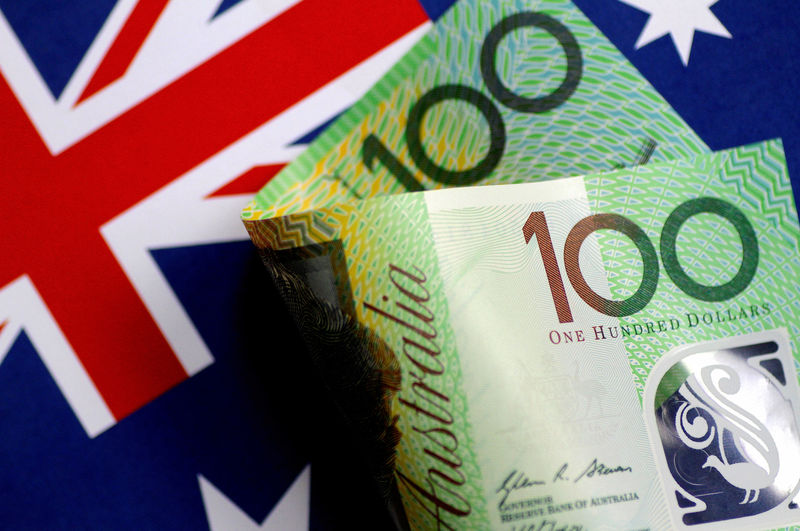Investing.com -- Most Asian currencies retreated on Wednesday, while the dollar steadied as investors hunkered down before a widely expected interest rate hike from the Federal Reserve.
The Australian dollar was the worst performer among its peers, falling sharply after softer-than-expected consumer price index (CPI) inflation data ramped up bets that the Reserve Bank of Australia (RBA) was done hiking interest rates.
Broader Asian currencies also fell, as optimism over more stimulus measures in China cooled and as the Fed decision approached. China’s yuan lost 0.3%, while the Japanese yen and the South Korean won shed 0.1% each.
Australian dollar slides as markets look to RBA pause
The Australian dollar fell 0.4% after data showed that CPI inflation grew less than expected in the second quarter.
The reading boosted expectations that the RBA will announce an extended pause in its rate hike cycle next week - which diminishes the Aussie’s appeal.
But given that Australia’s labor market remains strong, inflation may be sticker than expected in the coming months - a scenario that could see the RBA once again begin raising rates.
Fed rate hike in focus, dollar steady
The dollar steadied in Asian trade after rebounding sharply from 15-month lows in the past week. The dollar index and dollar index futures moved less than 0.1% each on Wednesday.
While the Fed is widely expected to raise interest rates by 25 basis points (bps), markets remain uncertain over the bank’s outlook for future hikes. The Fed has so far signaled that it will raise rates by at least 50 bps more this year, given that inflation is still trending above the central bank’s annual target.
But inflation has also cooled substantially in recent months, which spurred bets that the Fed’s hike on Wednesday will be its last for the year.
While the prospect of no more rate hikes bodes well for Asian currencies, gains are expected to be limited with U.S. rates set to remain higher for longer.
Japanese yen muted, BOJ in focus
The Japanese yen fell slightly on Wednesday, with focus also turning to a Bank of Japan meeting this Friday.
While the BOJ is widely expected to keep its ultra-dovish yield curve control (YCC) policy unchanged, some analysts warned that the bank could deliver a hawkish surprise, especially amid sticky inflation and sluggish wage growth.
The International Monetary Fund's chief economist Pierre-Olivier Gourinchas said on Tuesday that the BOJ should start preparing for future monetary tightening, citing economic risks from inflation remaining elevated.
